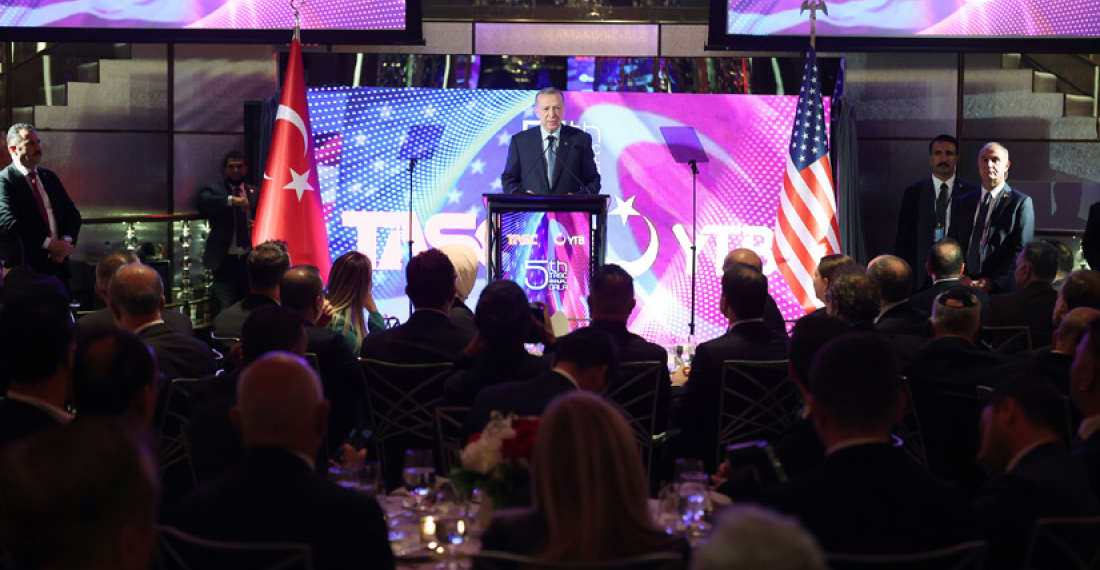Turkish President Recep Tayyip Erdogan has said Turkey and the United States are be able to resolve bilateral problems and develop cooperation based on common interests. Erdogan is in New York to address this year's UN General Assembly.
“There is no problem between Turkey and the U.S. that they, as two strategic partners and 70-year-long allies, cannot resolve. Although we have some differences of opinion over the issues concerning our national security, we share similar attitudes in many regional and global matters,” Erdogan said on Sunday (18 September) at a dinner event organized by the Turkish American National Steering Committee (TASC).
Stating that Turkey is one of the countries most affected by terrorism and at the forefront of the fight against terrorism, Erdogan said they would continue to resolutely fight against all terrorist organizations, including PKK-YPG, ISIL and FETO, without making any distinction.
“We will definitely remove the bloody and dark shadow of terrorism from our region,” he said.
The president said Turkey expected the U.S. to act in cooperation in its fight against the PKK-YPG and FETÖ in a manner befitting the spirit of the alliance.
Erdogan also said that Turkey and the U.S. have similar stands on many regional and global issues despite differences on issues about Ankara’s national security, adding that he and U.S. President Joe Biden have agreed to strengthen the friendship and cooperation between their nations.
Elaborating on the war between Russia and Ukraine, Erdogan said Turkey would continue efforts to end the war through diplomacy and eliminate its regional and global impacts.
“The Istanbul Agreement, which was achieved as a result of our efforts with the U.N. to export Ukrainian grain via the Black Sea, is the most concrete example of these efforts,” the president said.
“We want to translate the positive climate we have achieved here into a cease-fire and then lasting peace,” he added.
During the speech Erdogan also raised the issue of perceptions of Islam in the United States. There has been an increase in hate speech, Islamophobia and prejudices against Muslims around the world, Erdogan stressed, saying the Turkish-American community and Muslim Americans were sometimes subjected to such attacks. He also urged the U.S. to take “strong” precautions against the “distorted mentality” that likens Islam to terrorism and hatred against Muslims.






